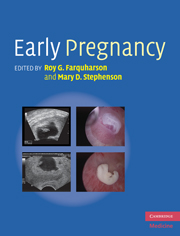Crossref Citations
This Book has been
cited by the following publications. This list is generated based on data provided by Crossref.
Gaillard, Frank
Jones, Jeremy
and
Elfeky, Mostafa
2008.
Radiopaedia.org.
Weerakkody, Yuranga
Campos, Arlene
and
Yap, Joshua
2011.
Radiopaedia.org.
Radswiki, The
Bell, Daniel
and
Weerakkody, Yuranga
2011.
Radiopaedia.org.
Radswiki, The
Jones, Jeremy
and
Bell, Daniel
2011.
Radiopaedia.org.
Taylor, Anthony H
Melford, Sarah E
and
Konje, Justin C
2013.
Encyclopedia of Life Sciences.
Izadi, Morteza
Alemzadeh-Ansari, MohammadJavad
Kazemisaleh, Davood
Moshkani-Farahani, Maryam
and
Shafiee, Akbar
2015.
Do pregnant women have a higher risk for venous thromboembolism following air travel?.
Advanced Biomedical Research,
Vol. 4,
Issue. 1,
p.
60.
Zedler, Barbara K.
Mann, Ashley L.
Kim, Mimi M.
Amick, Halle R.
Joyce, Andrew R.
Murrelle, E. Lenn
and
Jones, Hendrée E.
2016.
Buprenorphine compared with methadone to treat pregnant women with opioid use disorder: a systematic review and meta‐analysis of safety in the mother, fetus and child.
Addiction,
Vol. 111,
Issue. 12,
p.
2115.
Redline, Raymond W.
2017.
Placental and Gestational Pathology.
p.
16.
Redline, Raymond W.
2017.
Placental and Gestational Pathology.
p.
9.
Agolah, Dennis
2022.
Radiopaedia.org.



